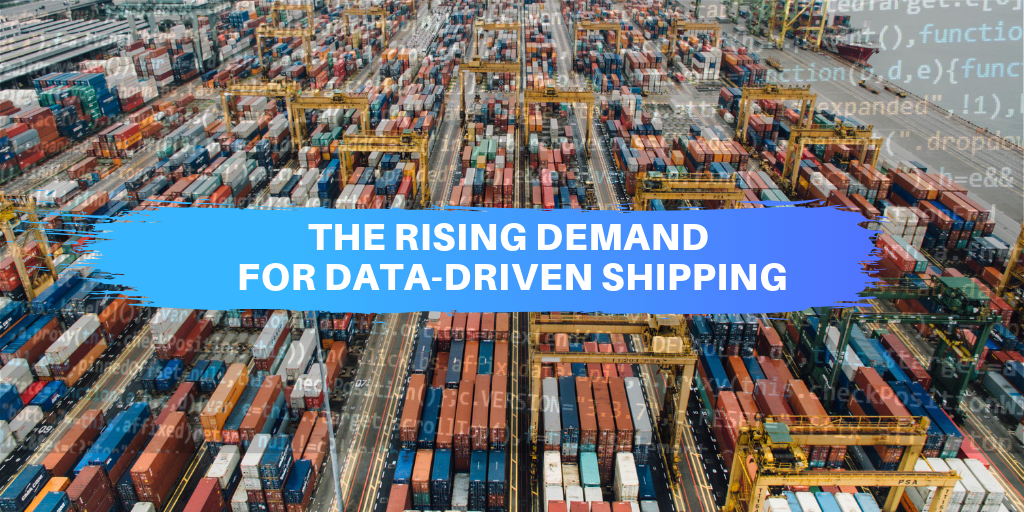The Rising Demand For Data-Driven Shipping
The container shipping industry is undergoing a phase of uncertainty with a myriad of difficulties threatening its success and prosperity. We are hopeful that the shipping organizations will think of newer strategies and technologies to establish its strong presence in the maritime arena.
The steady advent of digitization across the globe has triggered the exponential growth of global industries and of course, this will prove to be highly beneficial for the maritime sector. With the growing demand on the multiple nodes included within the supply chains on a global basis, the various terminals, ports and service providers are exploring the possibilities of smarter, data-driven solutions for a better future. As you must be aware of, the shipping industry needs to improve the transparency, connectivity and communication factors to emerge as an even more prosperous sector in the long run.
The ports and terminals that are still lagging behind in the race for innovative technologies, are still taking the help of manual, lesser-advanced systems to carry out the daily operations. However, a majority of the ports, terminals and shipping organizations are embracing the newly launched, data-driven technologies in order to fully utilize data for ensuring the security (and, safety) of the crew members and the shipment, for carefully planning their day-to-day operations and for meeting the demands of the clients.
Also, overcapacity is now being declared as a huge challenge that can harm the smooth functioning of the shipping operations throughout the world. Not paying any heed to the looming problem, the well-established carriers (such as Maersk and MSC) have taken an initiative to invest in large-sized ships that has in turn, pressurized the terminals and ports to upgrade their methods of tackling more vessels.
The shipping industry is constantly bombarded with a myriad of challenges and competing with the air-freight is one of the looming issues that is threatening the next-day shipping. The maritime organizations are making an attempt to devise newer ways accelerate the smooth movement of cargo across the globe. It has been predicted that the data-driven technologies or the ones that are based on digital applications (like in case of automation) will keep on spreading their influence on a large scale, which might lead to the remaining companies to accept the undeniable power. The hope of digital culture in the near future is brewing since long and might lead to serious competition within the industry.
The need for a data-driven culture along with the development of digitization will require the involvement of both major and minor companies belonging to the maritime industry. One of the most prominent automation specialists in the whole world, ABB has stressed on the necessity of implementing intelligent data tools and digital applications in order to fuel the unhindered growth of maritime trade and of course, the global economy.
On the other hand, a majority of the start-up companies are now cooperating with the major ones to embrace the digital revolution. The two modern-day companies that grabbed a lot of attention in the past year, were Nyris (that believes in making use of AI-based solutions to process the visual data) and CargoMate (that has successfully created a platform to predict the cargo completion times). This collaboration between the industry giants and the new start-ups is paving the path for a brighter future that promotes the data culture.
We must not forget that this drive towards data-driven shipping will inevitably have an effect on the trade hubs that are associated with the processing and transfer of cargo, while ensuring the hassle-free flow within the supply chain. These trade hubs also need to join other companies and adapt to the evolving concepts of digitization in order to boost their efficiency.
Needless to say, these data analyzing tools will play an influential role in carefully evaluating a company’s performance with a much more transparent approach. The finest example of this innovative technology is the Port of Rotterdam that has introduced full-fledged applications (such as the Port Community Systems and the Pronto application) to make way for a smarter, well-connected network of supply chains.


















